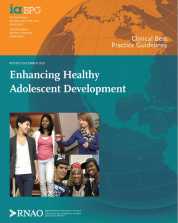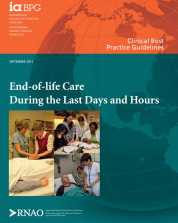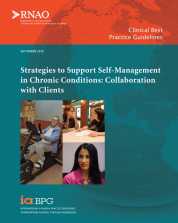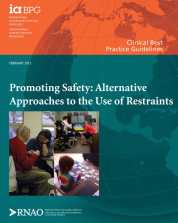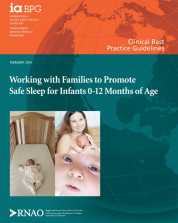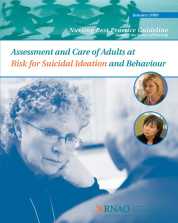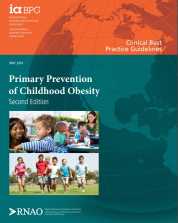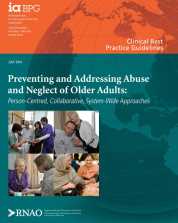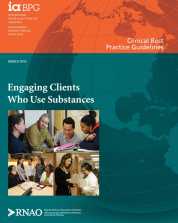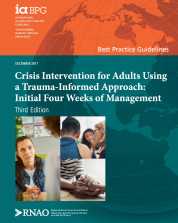The purpose of this best practice guideline (BPG) is to assist nurses working with youth in a variety of practice settings, i.e. schools, public health units, community health centres, adolescent clinics, hospitals, and in family practice. Recommendations are inclusive of adolescent development across diverse contexts (e.g. cultural, socioeconomic, structural, political.)
The purpose of this best practice guideline (BPG) is to provide evidence-based recommendations for registered nurses and registered practical nurses on best nursing practices for end-of-life care during the last days and hours of life.
The purpose of this best practice guideline (BPG) is to provide evidence-based recommendations for registered nurses and registered practical nurses in self-management support. These recommendations identify strategies and interventions that enhance an individual’s ability to manage their chronic health condition.
The purpose of this best practice guideline (BPG) is to provide evidence-based recommendations for registered nurses (RNs) and registered practical nurses (RPNs) related to the care of individuals who are at risk for behaviours that may result in harm to self/others and lead to the possible use of restraints (physical, chemical, environmental). Unless otherwise indicated in the guideline, the discussion focus is on physical restraint.
The purpose of this best practice guideline (BPG) is to address the question of how health-care providers can partner with families to promote safe sleep for infants 0-12 months of age to reduce known risk factors for injury and death.
The purpose of this best practice guideline (BPG) is to provide nurses with recommendations, based on the best available evidence, related to the assessment and management of adults at risk for suicidal ideation and behaviour.
The purpose of this best practice guideline (BPG) is to provide nurses across all practice settings with evidence-based practice, education, system, organization and policy recommendations for the primary prevention of obesity in infants, preschool, and elementary-school-aged children.
The purposes of this best practice guideline (BPG) are to expand the awareness of abuse and neglect of older adults and to provide evidence-based recommendations for preventing and addressing abuse and neglect in all health-care settings across the continuum of care in Canada.
The purpose of this best practice guideline is to provide nurses and the interprofessional team across all care settings with evidence-based recommendations related to assessment and interventions for individuals aged 11 years and older who use substances and may be at risk for or experiencing a substance use disorder.
The purpose of this best practice guideline is to focus on how nurses and the interprofessional team can provide effective trauma-informed crisis interventions (immediately and to up to four weeks post-crisis) in adults (18 years and older) in order to optimize evidence-based practices and clinical outcomes. The guideline is applicable in all practice settings and promotes consistent, evidence-based response and care.
